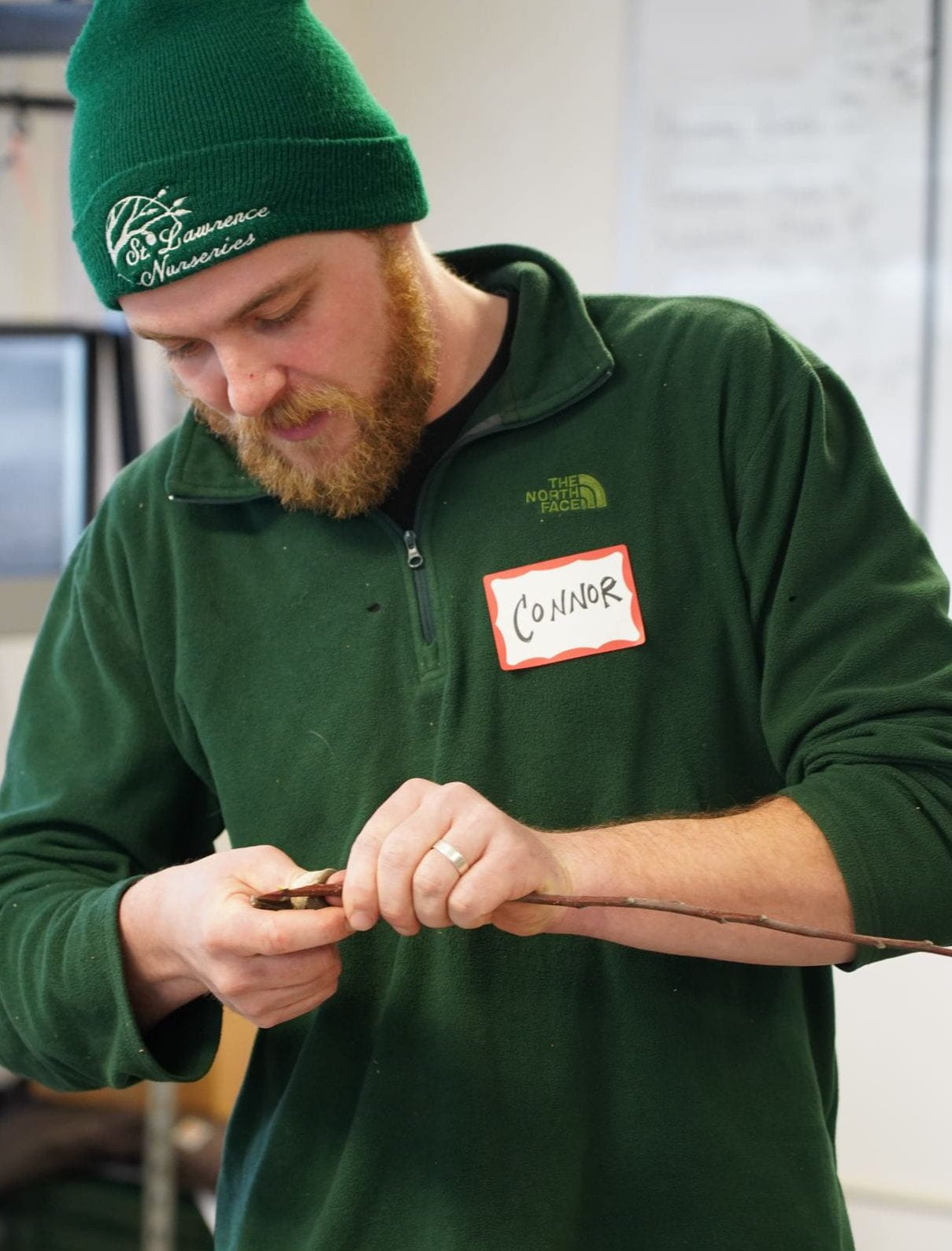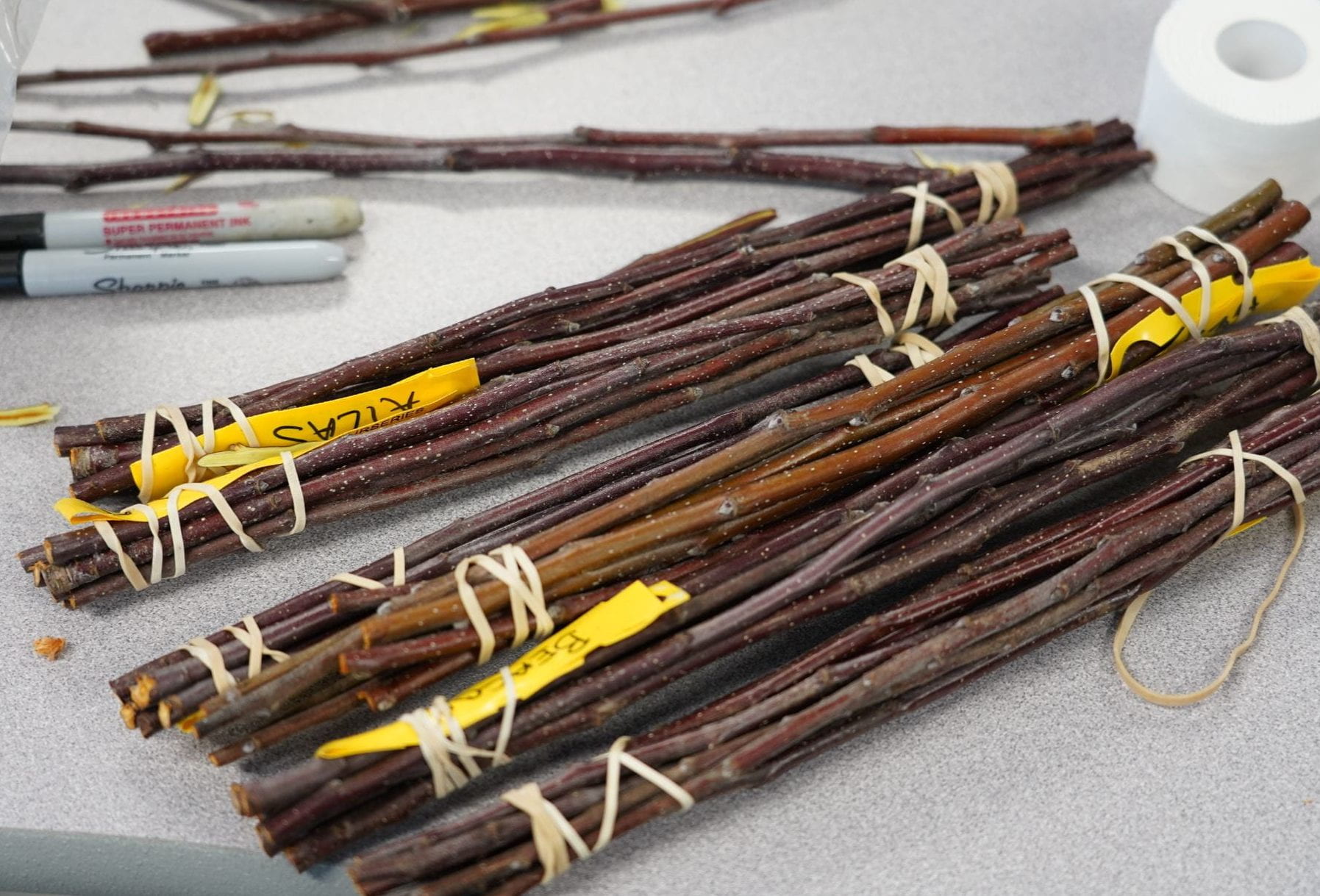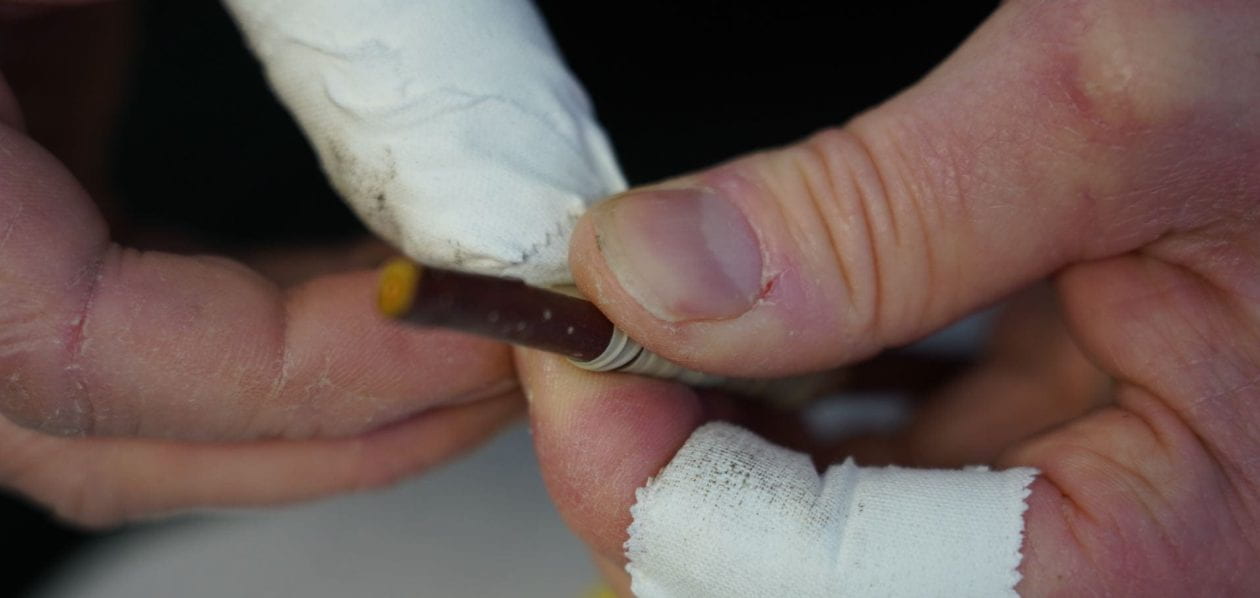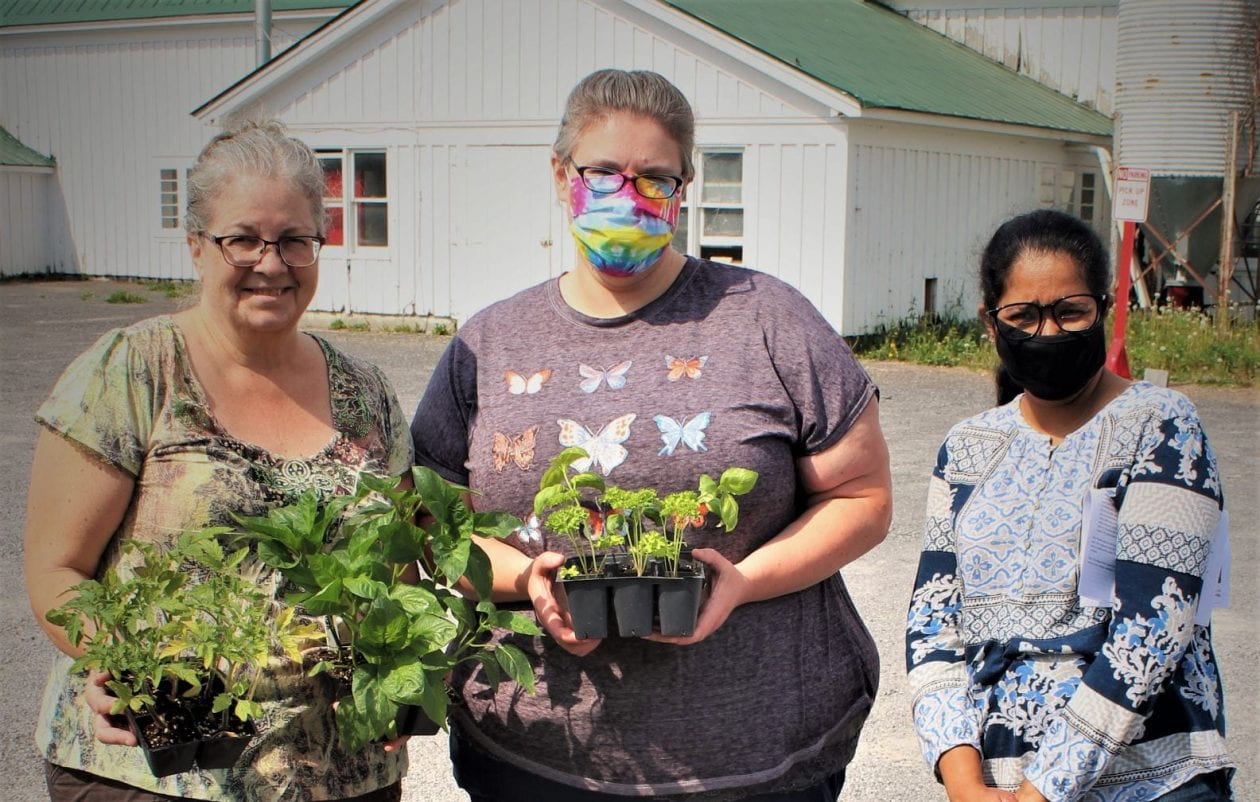It was a joy to partner with St. Lawrence Nursery (SLN) of Potsdam for the first time to offer an apple tree grafting workshop at the Extension Learning Farm. This year St. Lawrence Nurseries is celebrating its 100th anniversary of propagating and selling cold hardy fruit and nut trees.
During the workshop nursery owners, Conner and Alyssa Hardiman walked the eager participants through the “whip and tongue” grafting technique including photos from the nursery, a live demo, plenty of time to practice on twigs, and then the real thing!

Grafting is a propagation method that entails joining a scion (which becomes the fruiting part, or top of the tree) to a rootstock (which becomes the root of the tree). Grafting aligns the vascular tissue which allows the two parts to grow together and function as a single plant. While the rootstock influences the ultimate size and hardiness of the tree, the scion determines what kind of fruit the tree will yield.

Workshop participants left with five grafted trees of their own making. Each included the hardy rootstock Antonovka (originally from Russia) paired with the scion wood of their choice from the SLN orchard. Apple varieties on offer included Liberty, Rhuby, Atlas, Beacon, and MN-1734 (a russet cider apple). Read more Grafting apple trees with St. Lawrence Nurseries

